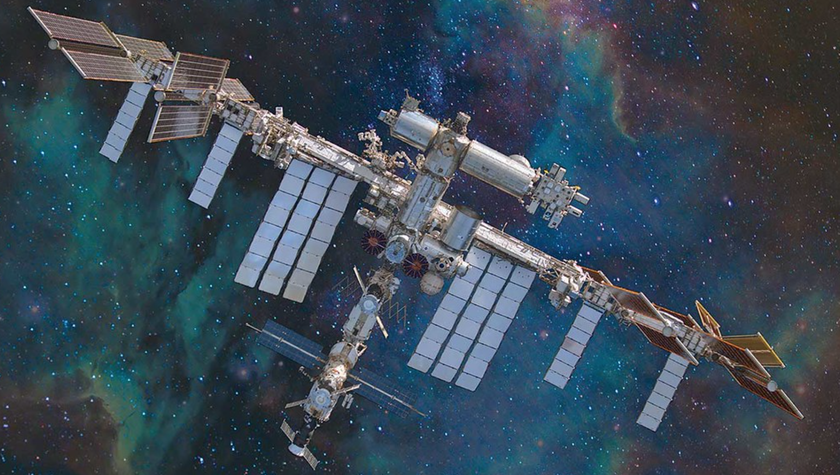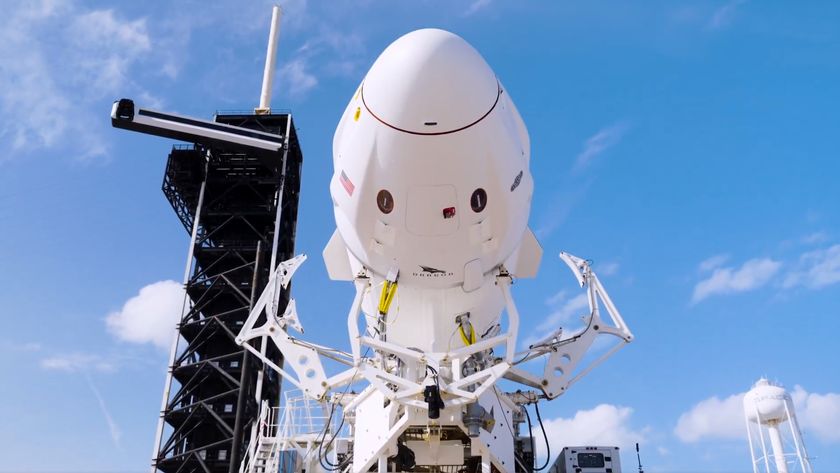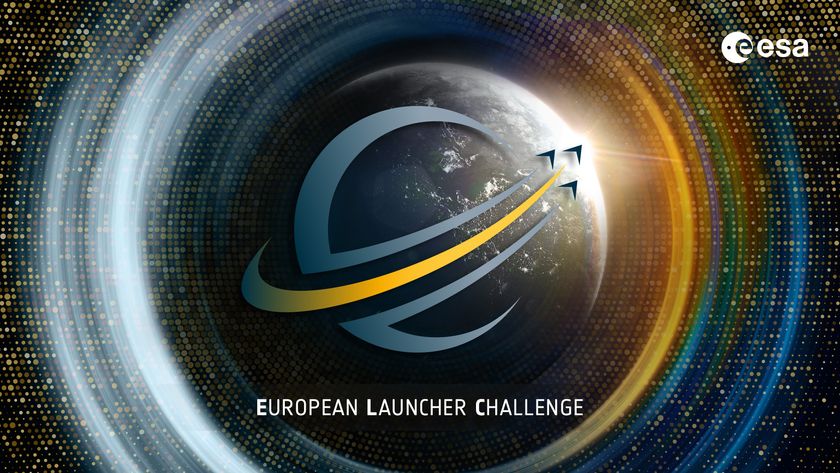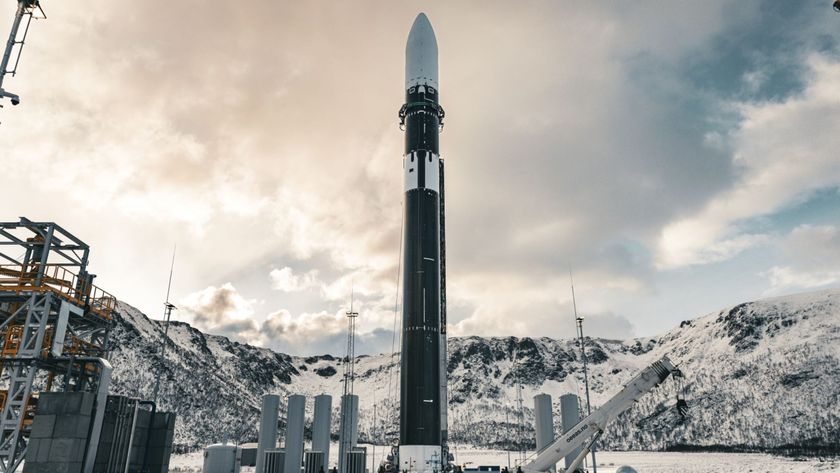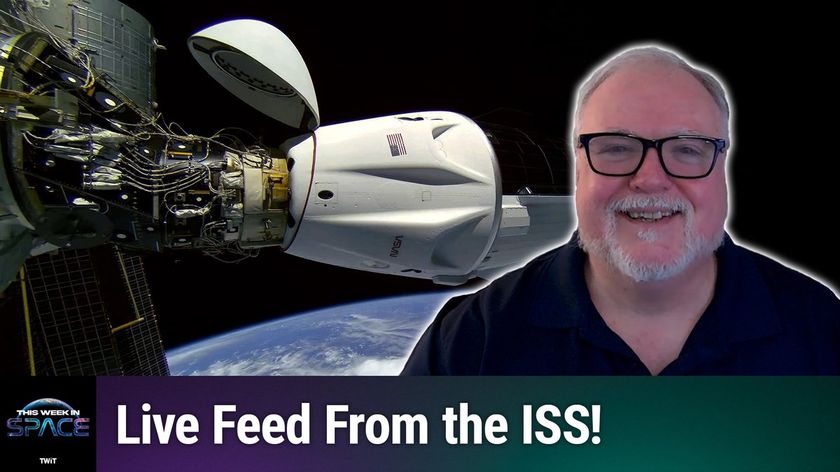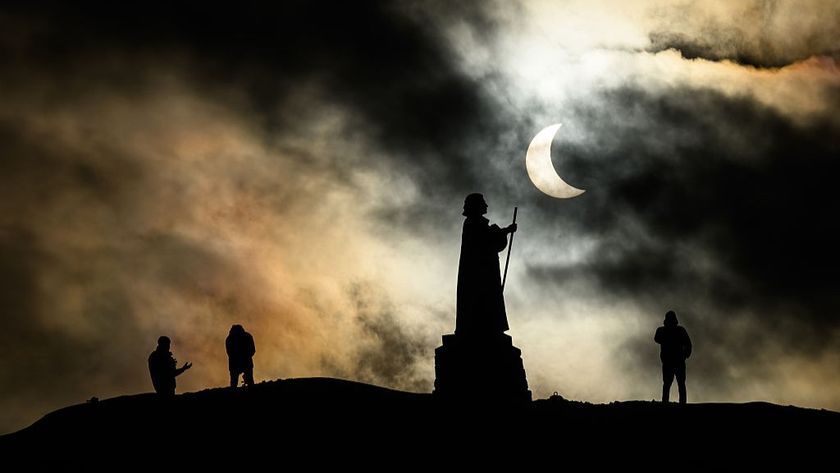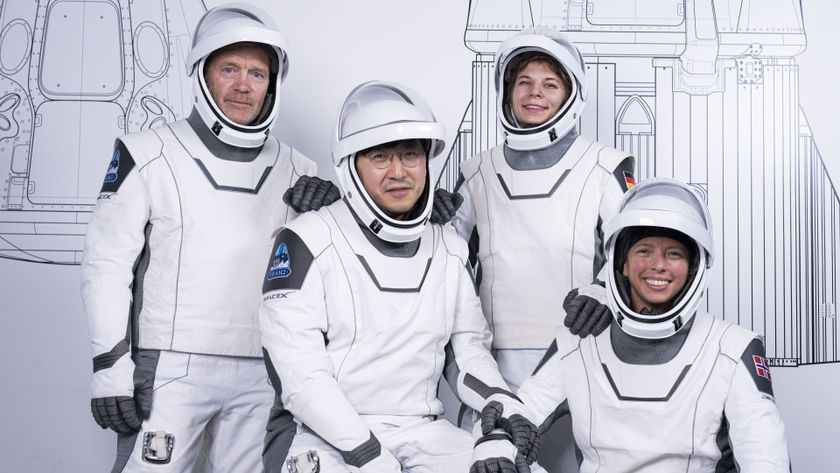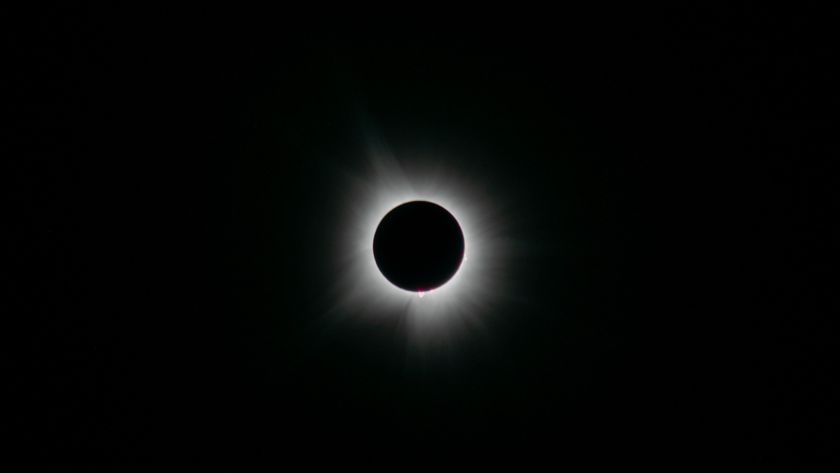Astronauts Help Usher in Beijing Olympics
The countdown to the lighting of the cauldron and the fireworks that followed its ignition were not the only rocket-related allusions that led to the 2008 Beijing Summer Olympic Games. Space explorers from at least three nations took part in carrying the torch to the Beijing National Stadium in China while the son of a U.S. astronaut prepared to compete as one of the athletes.
The flame's relay, which began in March from Greece, traveled longer than any previous torch — over 85,000 miles (137,000 km), the equivalent of more than three orbits around the Earth's equator, visiting 130 cities in 130 days.
At its third destination, St. Petersburg, Russia on April 5, among the torch's 80 runners was cosmonaut Valentina Tereshkova, the first woman to fly in space. Asked to compare her role as a torchbearer with her experience on Vostok 6, Tereshkova was quoted by the Beijing Olympic Organizing Committee as saying the two were equally exciting but then joked, "It'll be slightly more relaxing for me to be on Earth."
Tereshkova wasn't the only record-setting space explorer to carry the torch. Two weeks after her run, Malaysia's first citizen in space, Sheikh Muszaphar Shukor paraded the flame along the top of Kuala Lumpur Tower on April 21. Unlike Tereshkova, whose spaceflight was in 1963, Sheikh Muszaphar's time with the torch occurred just six months after his return from spending a week aboard the International Space Station.
Reaching China in early May, the host nation brought the torch to Dongfeng "Space City", where among the 22 runners were many of the nation's space flight experts as well as the two-man crew of Shenzhou 6, China's second manned mission, and Wang Yongzhi, chief designer of their spacecraft.
Running the length of the moveable launch complex at Jiuquan Satellite Launch Center, taikonaut Fei Junlong said it was a great honor not just for him, "but also for the whole family of cosmonauts and China's space program technology." Fei's crewmate, Nie Haisheng, carrying the torch later that day, likened the occasion to celebrating a birthday as he did during his 2005 mission. "I am happy with this, even happier than my 41th birthday," said Nie.
China's first taikonaut, Yang Liwei, who made history on the Shenzhou 5 mission in 2003, was honored as the first torchbearer upon the flame's arrival in Beijing two days ago. "That the torch is finally in Beijing is a realization of a dream we've had for a hundred years," he said.
Get the Space.com Newsletter
Breaking space news, the latest updates on rocket launches, skywatching events and more!
Though the U.S. did not choose to have one of its own space explorers take part in the torch procession when it visited San Francisco, a NASA astronaut's own journey was temporarily paused in May to allow for the Olympic flame to pass. A veteran of five space shuttle missions and an Olympic Team Coach for the Philippines during the 1988 Olympic Winter Games, Scott Parazynski was at Base Camp when Chinese climbers carried the torch to the summit of Mt. Everest on May 8.
The United States' Olympic Team also includes gymnast Justin Spring, son of former NASA astronaut Sherwood "Woody" Spring, who served as a mission specialist on STS-61B in 1985. The elder Spring reflected on his own role as an astronaut and his 24 year old son's selection in an interview with the Philadelphia Inquirer.
"It's just different prides," said Spring. "I've had my turn. Now it's his turn."
The 2008 Beijing Olympic Games' opening ceremonies was set to begin at 8:08 p.m. local China time on Aug. 8 (08/08/08 08:08). For U.S. viewers, NBC will broadcast the ceremony beginning at 7:30 p.m. EDT.
Click here for more images of astronaut torchbearers for the 2008 Beijing Olympic Games.
Copyright 2008 collectSPACE.com. All rights reserved.
Join our Space Forums to keep talking space on the latest missions, night sky and more! And if you have a news tip, correction or comment, let us know at: community@space.com.

Robert Pearlman is a space historian, journalist and the founder and editor of collectSPACE.com, a daily news publication and community devoted to space history with a particular focus on how and where space exploration intersects with pop culture. Pearlman is also a contributing writer for Space.com and co-author of "Space Stations: The Art, Science, and Reality of Working in Space” published by Smithsonian Books in 2018.In 2009, he was inducted into the U.S. Space Camp Hall of Fame in Huntsville, Alabama. In 2021, he was honored by the American Astronautical Society with the Ordway Award for Sustained Excellence in Spaceflight History. In 2023, the National Space Club Florida Committee recognized Pearlman with the Kolcum News and Communications Award for excellence in telling the space story along the Space Coast and throughout the world.
